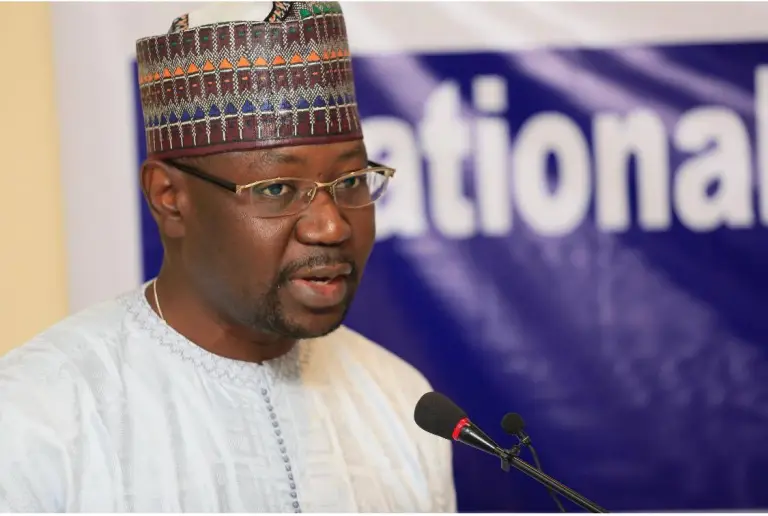
By Omar Bah
The leader of the Gambia Moral Congress and former Interior Minister has said the recent appointment of executive coordinators for Banjul and KM is constitutional.
The appointments have since generated public debate with prominent lawyer Lamin J Darbo arguing that the appointments were unconstitutional.
But speaking in an exclusive interview with The Standard on Tuesday, Mai Ahmad Fatty, himself a lawyer, argued: “The president did not offend any law in creating the office of Executive Coordinator and those with locus standi who may wish to test the law on this specific matter, may exercise their constitutional right to do so, as it would strengthen our democracy and enrich our jurisprudence. But the purpose of this rejoinder is purely to contribute towards the legal debate launched by my friend and brother Counsel Lamin J Darbo on the impropriety of the president’s action”.
Fatty said his argument is not intended to examine the policy imperative that may have conditioned the president in establishing the office of Executive Coordinator or appointments made thereunder.
He said there is no section or clause in the entire 1997 constitution that invalidates or impairs the president’s ability or power to constitute an office known as Executive Coordinator and to make appointments to that office.
Fatty said under Section 80, the constitution expressly grants the president such discretionary authority and entitles him to create such office.
“This contention cannot be denied or rejected on grounds of law by making reference to any contravening provision, to discredit this assertion. The only limitation imposed by the Constitution on the President’s power to do so, is inherent in the section itself. It states: subject to this Constitution and any Act of the National, the President may constitute any public office for The Gambia and make appointments to such office and terminate such appointments. Section 230 (1) of the 1997 Constitution defines public Office, while Section 230 (5) empowers the president to dismiss the holder of a public office.
“Therefore, both the creation of the office of Executive Coordinator and appointments made thereto, fully complied with Gambian law. In essence, it means the power of the President to constitute offices and make appointments to such offices, such as Executive Coordinator is legally incontestable. Any other argument, according to section 80 of the 19997 constitution is futile,” he added.
He said an important plank of Counsel J Darbo’s contention deals with the separation of powers.
“What is separation of powers? It is a fundamental principle in democratic governance, aimed at preventing the concentration of power in any single authority. The executive branch makes policies, implements and enforces laws, while the legislature branch make laws, imposes accountability and also holds the power of the purse. The judicial branch interprets and applies laws impartially. By separating powers, this system fosters a healthy balance of authority, preventing abuse and authoritarianism. It is a cornerstone of modern democratic societies, upholding the principles of democracy, justice and the rule of law. By distributing powers among these branches, the separation of powers prevents any single entity from accumulating excessive authority. It serves as a safeguard against excesses and ensures that no branch becomes dominant or abuses its power.”
This system, he added, establishes a delicate balance where each branch acts as a check on the others, promoting accountability and preserving the rights and liberties of citizens and institutions.
“Yet, total separations of powers do not exist anywhere in the world, including The Gambia. The Gambian Constitution does not recognise the doctrine of separation of powers in an absolute sense, though it clearly defines the powers and functions of each origin. The legislature, executive, and the judiciary are expected to operate within their designated domains. Regarding administrative authoritative law, which determines the organisation, powers and duties of administrative authorities, the principle of separation of powers poses a challenge. Administrative agencies increasingly exercise not only administrative functions but also quasi-legislative and quasi-judicial powers, which goes against the strict separation of powers.”
He added that since the president’s authority is rightly anchored on section 80 of the constitution, the essential question that may arise is, does the challenged action of the President threaten the essential attributes of the legislature, executive or judicial functions in the context of separation of powers?
“This will assess the substance of Counsel J Darboe’s views on the impropriety of the appointments in relation to the principles of the separation of powers. Based on the job descriptions of an Executive Coordinator, which is analogous to that of a Regional Governor. The functions of a Regional Governor are provided for in section 124 of the Local Government Act, 2002 (as amended), Cap 33:01, laws of The Gambia. Having examined this section within context, it is my considered view there is little or no risk that the president’s action will impair the core functions of any branch of government in the existing governance architecture. This is the functionalist approach as opposed to the formalist approach in the separation of powers. The creation of the new office satisfies the formalist doctrine of the separation of powers.”
Fatty said the argument that Regional Governors do engage in partisan politics is an aberration and not contained in their core functions or job description.



